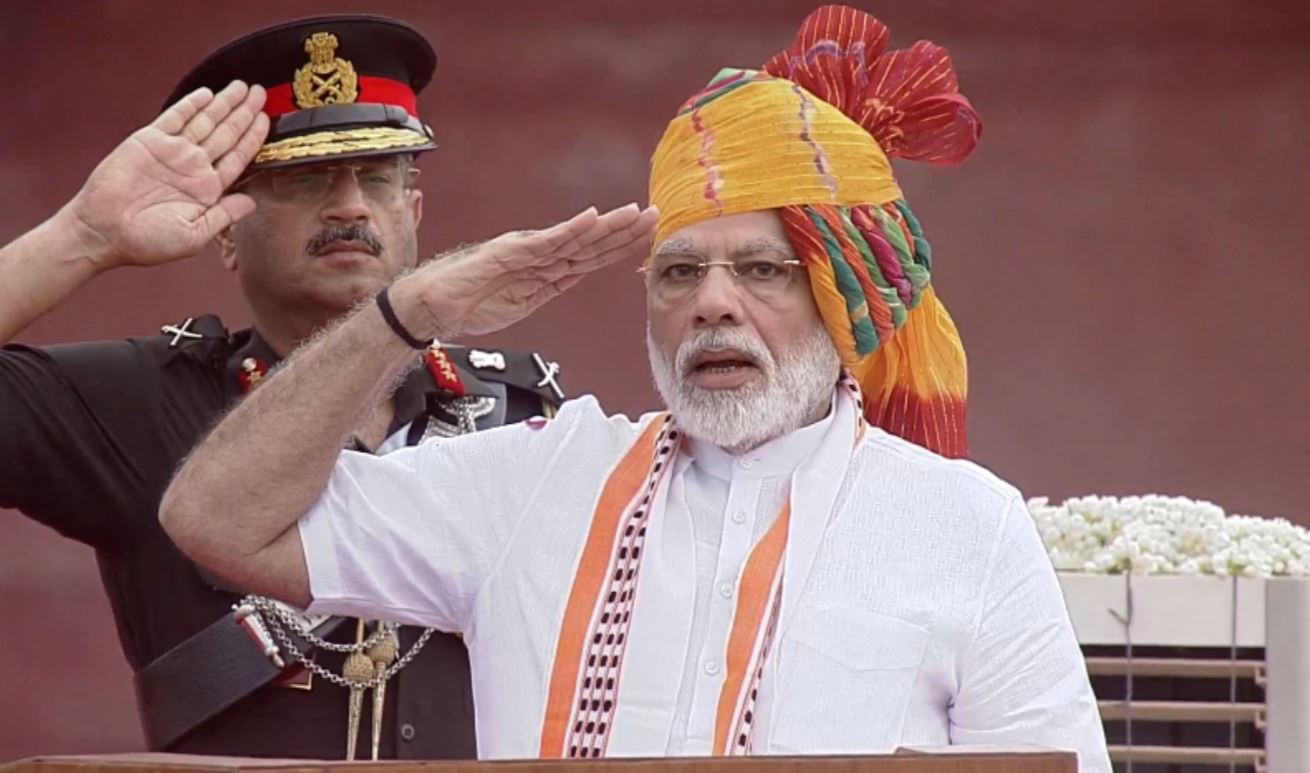Congress’ inconsistent stance aiding BJP’s continuance in power: Kerala CM
Vijayan said the BJP has been making electoral gains in several states due to the Congress’ lack of a firm position against the saffron party.
On the eve of India’s 73rd Independence Day on Wednesday, President Ram Nath Kovind praised Narendra Modi-led government’s move on Article 370.

Prime Minister Narendra Modi unfurls the Tricolour flag at the ramparts of Red Fort on the occasion of 73rd Independence Day. (Photo: Twitter | @BJP4India)
Prime Minister Narendra Modi on Thursday said with the abrogation of Article 370 and 35A in Jammu and Kashmir, the dream of “One Nation, One Constitution” has been realised, as he lashed out at the opposition speaking against the move, asking if they felt it was so necessary why didn’t they make it permanent in the past 70 years.
“For those speaking in favour of Article 370 and 35A, the country is asking if they were so important for changing the country’s fortunes, then why didnt you make it permanent? Why did you keep it as temporary (clauses)?” the Prime Minister asked in his Independence Day speech.
Advertisement
“If you had the conviction, why didn’t you make it permanent?”
Advertisement
Delivering his sixth I-Day speech from the ramparts of Red Fort, Modi said the new Government, which has not yet completed 10 weeks, has taken a major step towards realizing the dream of Sardar Vallabhbhai Patel.
He said there were many who in their hearts knew that Article 370 and Article 35A were not good, but lacked the courage to do anything. “Because you too knew that what had happened was not proper, but lacked the courage to go forward.”
“For me the country’s future is everything, not my political future,” he said.
“Now one can say with pride, One Nation, One Constitution,” Prime Minister Modi said.
“GST brought to life the dream of One Nation, One Tax. India has also achieved One Nation, One Grid in the energy sector. Arrangements have been made for One Nation, One Mobility Card. Today, India is talking about One Nation, One Election,” he further said.
Ahead of the address, PM Modi unfurled the national flag at the Red Fort to mark the 73rd Independence Day.
Earlier in the day, PM Modi paid tributes to Father of the Nation, Mahatma Gandhi at Rajghat.
On the eve of India’s 73rd Independence Day on Wednesday, President Ram Nath Kovind praised Narendra Modi-led government’s move on Article 370.
“I believe the recent changes carried out in Jammu and Kashmir and Ladakh will be immensely beneficial for the citizens of the region,” Kovind said.
The President further added that the political changes to the state will enable its people to access and enjoy the same rights, privileges and facilities at par with the rest of the country.
On August 5, the Government of India revoked the special status for Kashmir and divided the state into two Union territories – J&K and Ladakh — for better governance.
Advertisement